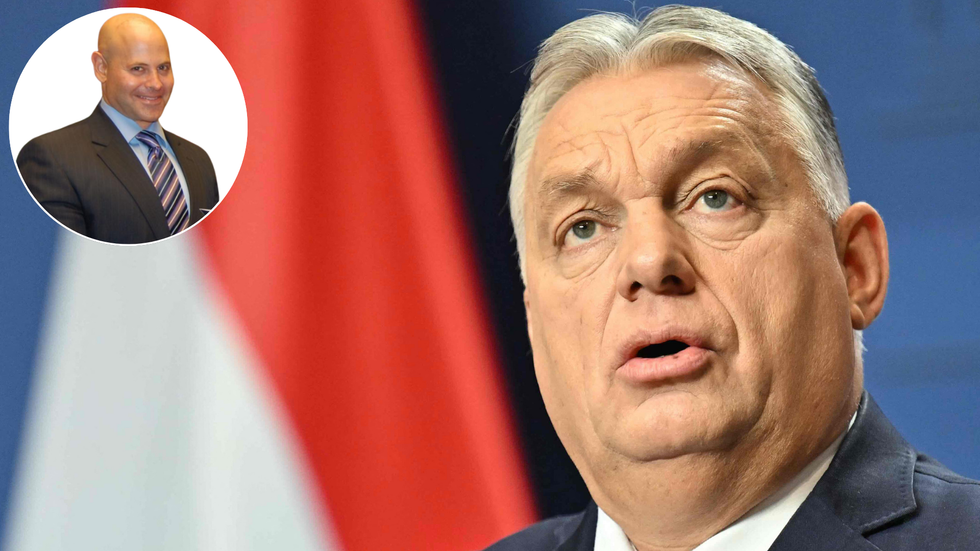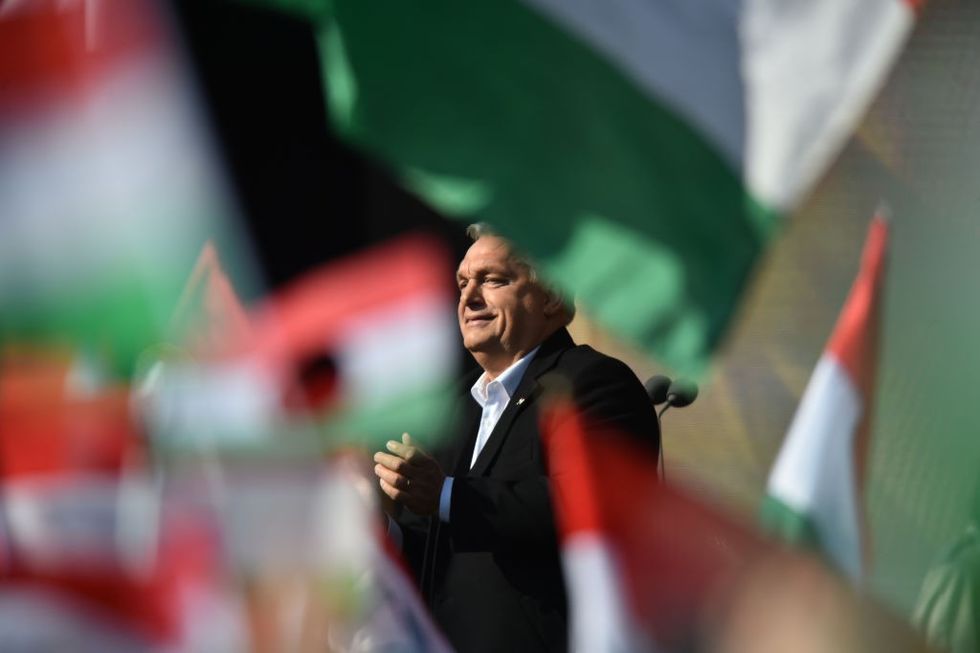Hungary's Orban ready to 'occupy' Brussels to bring EU change
GB News
OPINION: Viktor Orbán's leadership is an example that all conservatives should give serious consideration to, says Lee Cohen.
Don't Miss
Most Read
Trending on GB News
On Monday, France’s Marine Le Pen suffered a crippling setback: convicted of embezzling EU funds, banned from public office for five years, and effectively sidelined from the 2027 presidential race unless an appeal reverses the verdict. The progressive establishment has silenced a formidable voice opposing its agenda.
Meanwhile, Hungary’s Viktor Orbán presses forward, undeterred, challenging Europe’s liberal norms with a resolve that contrasts sharply with Le Pen’s faltering trajectory. Recently, he dismissed the EU’s mandate for 72-hour emergency kits as impractical overreach, a pointed jab at Brussels’ bureaucracy. While Le Pen’s political fate hangs in the balance, Orbán’s unapologetic focus on Hungarian sovereignty, Judeo-Christian values, and strict immigration control offers a compelling model—one that conservatives and populists in America, Britain, and beyond might study closely.

No tolerance for illegal migration, no woke weakness - Viktor Orbán defies Brussels - Lee Cohen
GB News/Getty Images
Orbán’s leadership, unbroken since 2010, thrives despite Hungary’s economic struggles. His emphasis on national identity and border security has secured repeated electoral victories, most recently in 2022, reflecting widespread domestic support. Central to his approach is a zero-tolerance stance on illegal immigration. In 2015, he oversaw the construction of a fortified fence along Hungary’s southern border with Serbia and Croatia, a physical barrier to stem the tide of migrants. This was bolstered by stringent laws: unauthorized border crossings became punishable by up to three years in prison, asylum procedures were tightened, and “transit zones” were established to process migrants with limited legal recourse.
Though the European Court of Justice deemed these zones unlawful in 2020, Hungary’s defiance underscores Orbán’s commitment to his principles. The result? Illegal crossings plummeted from over 391,000 in 2015 to near-zero, a stark contrast to Europe’s broader challenges.
On security, Orbán’s immigration policies yield tangible results that invite comparison with nations like the UK. Britain, straining under an estimated 1 million illegal immigrants, faces economic and social pressures Hungary has largely avoided. Since 2015, Hungary’s border fortifications and enforcement have not only curbed illegal entries but also coincided with an absence of immigration-related terrorism—a record that stands out against Europe’s broader trends. For the UK, where immigration remains a top public concern, Hungary’s approach suggests a framework of control worth considering, though adapting it would require navigating Britain’s unique democratic and international obligations.
While Le Pen’s campaign against progressive excesses stalls under legal pressure, Orbán doubles down on preserving Hungary’s cultural heritage. His government has banned inappropriate LGBTQ+ propaganda in schools, framing it as a defense of dignity, freedom, and Christian traditions—values he argues liberal democracy fails to protect. The EU and left-leaning critics decry this as “authoritarian,” but Orbán presents it as a deliberate reclamation of national identity amid what he calls “progressive erosion.” For Britons and Americans grappling with rising secularism, restrictive speech laws, and open-border policies, his stance resonates as a bold alternative to the prevailing orthodoxy.

Viktor Orbán's defiance towards the EU resonates worldwide.
Getty Images
Orbán’s clarity on cultural issues extends to his stance against antisemitism, setting him apart from Le Pen, who has often sidestepped such allegations. Hungary under Orbán remains a staunch ally of Israel, contrasting with the ambivalence of leaders like Emmanuel Macron. His government supports Jewish community life domestically, and his well-publicized feud with George Soros hinges on ideological opposition to globalism, not ethnicity—a distinction rooted in Hungary’s historical identity. This pro-Israel position, paired with his rejection of intolerance, strengthens his appeal as a principled leader, outshining Le Pen’s quieter efforts.
Orbán’s influence extends beyond Hungary’s borders. At the recent EU summit, he broke from the consensus, advocating peace in Ukraine while critiquing Angela Merkel’s immigration legacy and Brussels’ faltering liberal model. He has expelled Soros-linked NGOs and replaced supranational ideals with a national, Christian ethos shaped by the 2008 financial crisis. In the U.S., Republicans—energized by Donald Trump’s praise of Orbán as “great”—see a blueprint for prioritizing citizens over globalist agendas. Britain’s Conservatives, searching for direction post-Brexit, might draw from his blend of cultural resolve and border firmness. Reform UK, tapping into voter frustration, finds strategic inspiration in his playbook.
Across Europe—Italy’s Giorgia Meloni, Portugal’s Chega, Poland’s conservatives—and beyond, to Canada’s PPC and Australia’s One Nation, leaders might increasingly look to Orbán as a counterweight to entrenched progressive doctrines. He eclipses other EU figures by balancing Hungary’s sovereign interests with its place in the alliance, a feat often misjudged by global elites but celebrated by those who value faith, identity, and self-determination. His tenure fuses individual rights with a Christian-oriented state, offering a dynamic alternative to Europe’s liberal drift.
Viktor Orbán’s statesmanship, attuned to his people’s aspirations, subtly yet firmly contests EU norms, resonating globally. Misunderstood by some, he is upheld by others as a guardian of tradition in an era of upheaval. For conservatives and populists worldwide, his example—from border security to cultural preservation—demands serious consideration. As Le Pen fades, Orbán endures, proving that decisive leadership can still thrive amid progressive headwinds.







